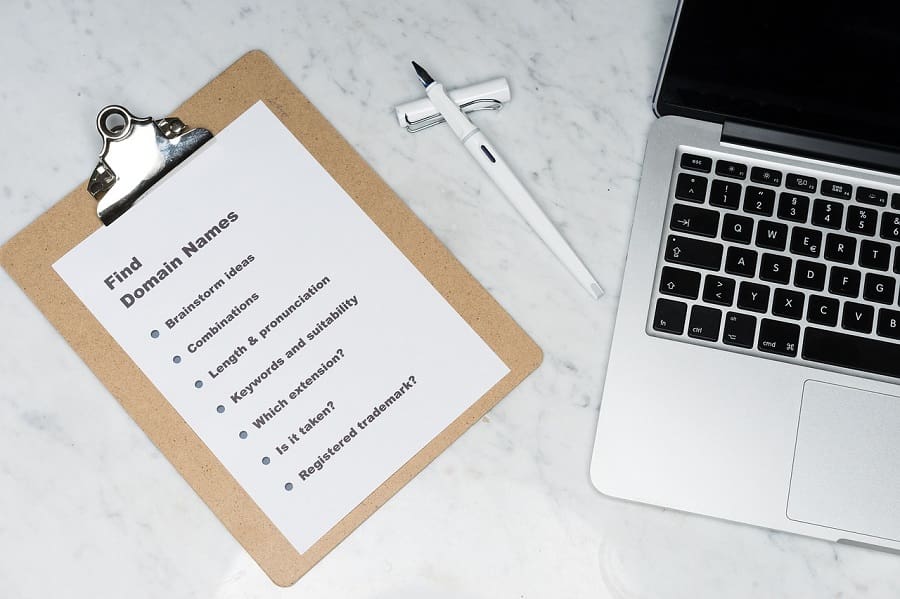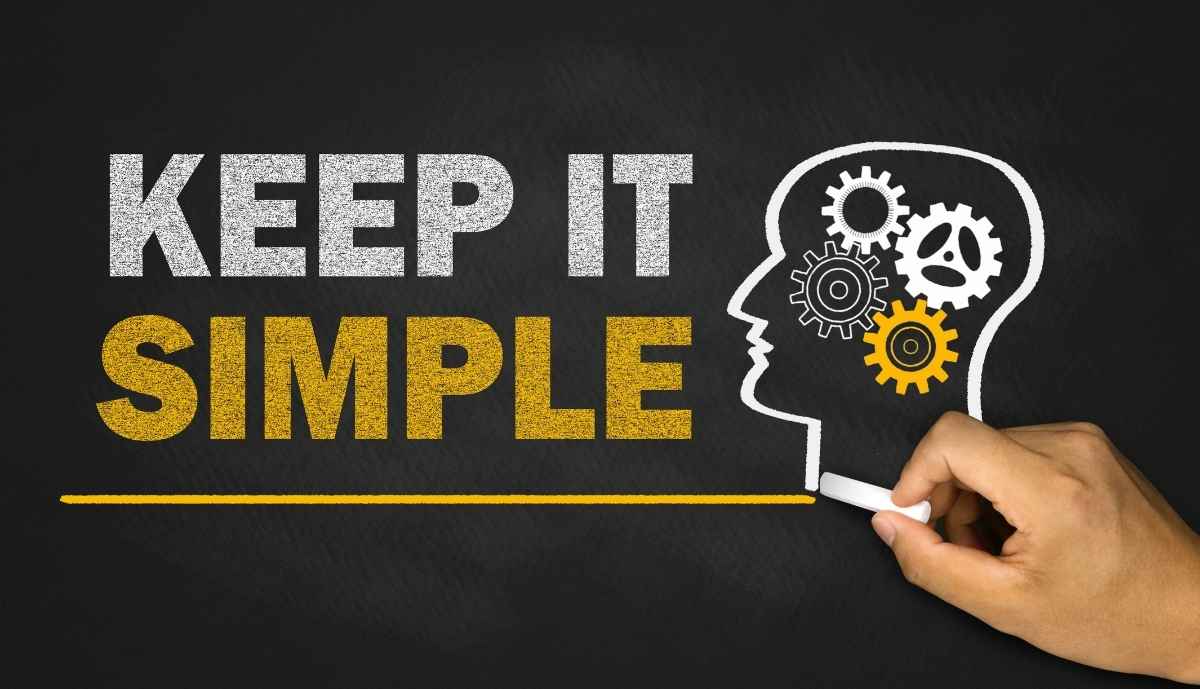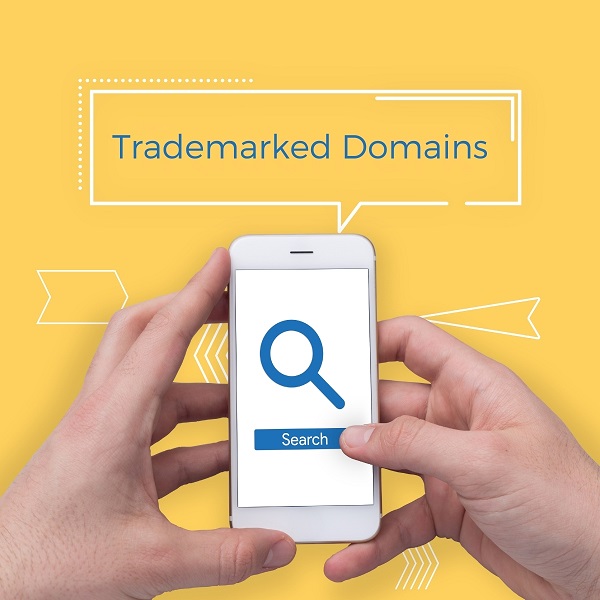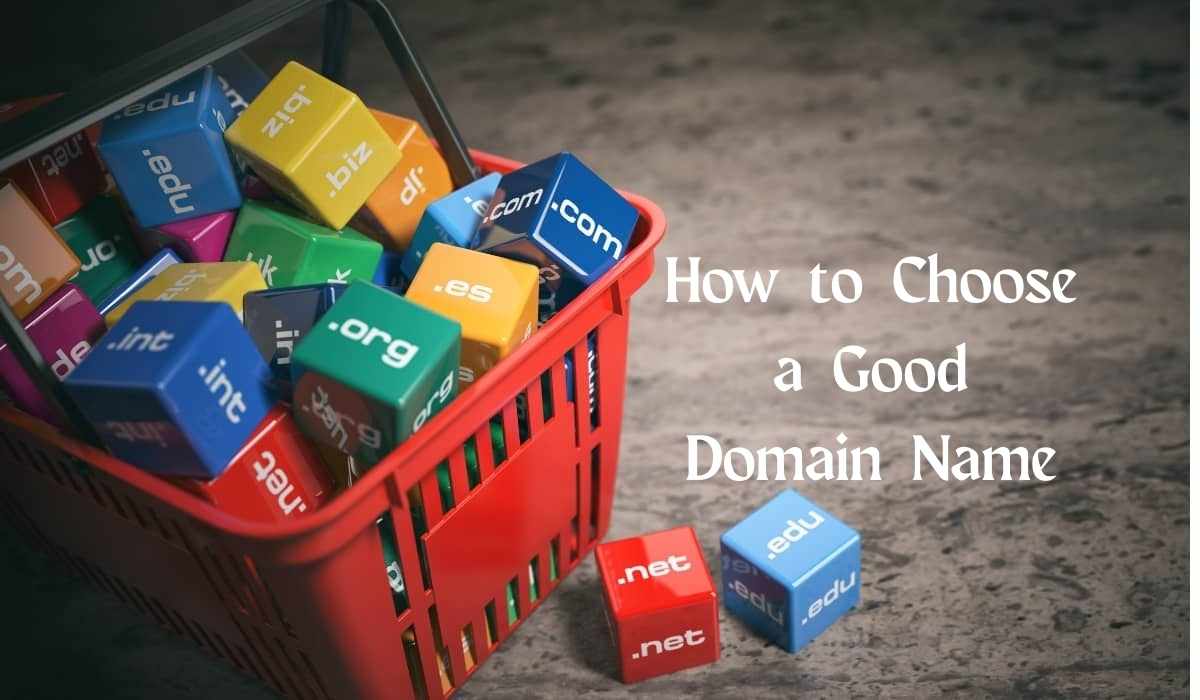After deciding to build a website, choosing a domain name becomes the very first big decision you must make. It's a process that demands careful thought. After all, your domain name isn't just a mere website address but also the cornerstone of your online identity.
But with millions already registered, mastering how to choose a good domain name for your website can feel like searching for a needle in a haystack. How do you come up with something unique that nobody has already claimed?
At the same time, crafting a name that resonates with your website's objectives and target audience can leave you with many questions. For instance, what does the domain name you choose convey? Must it include SEO keywords? Should it match your business name?
Indeed, a great deal is riding on this decision. The last thing that you want is to end up choosing a domain name that makes your website hard to remember and promote.
Fortunately, picking a winning domain name is easier than you think. In this post, you'll discover how to brainstorm memorable options that capture the essence of your brand and website.
Ready to make your mark in the digital landscape? Let's get started.
1. What Makes a Good Domain Name?
2. Tips on How to Choose a Good Domain Name
2.1. Prioritize a Concise Domain Name
2.5. Pick the Right Domain Extension for Your Brand
2.6. Check if Your Domain Name Is Available
2.7. Investigate the Domain's History
2.8. Check for Trademarks and Copyrights
2.9. Register Your Domain Name Quickly
What Makes a Good Domain Name?
Whether you share your website by word of mouth, on a business card, or visitors find it online, the domain name is one of the first things they'll notice. To make a lasting impression, it should be:
So, how do you select something that ticks all the boxes? Here are 10 practical tips to guide you through the domain name selection process.
10 Tips on How to Choose a Good Domain Name

1 Prioritize a Concise Domain Name
The first hack on mastering how to choose a good domain name is to keep it short and clear. The shorter it is, the better.
Here's why:
People visiting your site will find a concise domain name easier to recall, faster to type, and less prone to typos, especially on mobile devices.
However, choosing the perfect length for a website domain can be tricky. So, how do you keep it brief yet still convey your message sufficiently?
There are no hard and fast rules on how to choose a good domain name length. But by applying a few guiding principles, you can make a great choice.
A good benchmark is to choose something with two to three short words that relate to your niche or imply what you do. For instance, "wagsandwhiskers" could be an excellent choice for a pet store, while "techtrends" would be a great fit for a technology news blog.
Single-word domain names can be great too. In fact, some of the top global brands, such as Google, Nike, and Apple, adopted this approach. To spark ideas, try blending keywords, shortening phrases, or adding catchy prefixes or suffixes. You can also experiment with consonant-vowel sequencing to invent entirely new words. For example, notice how these brands use simple, memorable patterns:
- Lego → CVCV
- Pepsi → CVCCV
- Oreo → VCVV
- FedEx → CVCVC
- Dell → CVCC
Ultimately, the goal is to strike a balance between brevity and clarity. Whether you go for a single word or a combination of two to three short words, your domain name should be easy to remember, type, and share. This simplicity will make your website address easier to memorize and more user-friendly.
💡 Pro Tip: Check if the domain name you choose is also available to use as your social media handle. To ensure it fits the limit for X (Twitter) handles, stick to 15 characters or fewer (excluding the extension). That way, your brand stays consistent across platforms, making it easier for people to find and remember.
2 Keep It Reader-Friendly

Besides being concise, a good website name should be easy to type and roll off the tongue. If people have to pause and wonder how to spell or pronounce it, you've already lost half the battle.
With that in mind, avoid adding hyphens. They make your domain wordier to pronounce, since you’d need to say ‘dash’ or ‘hyphen’ when sharing it verbally, and people often forget them altogether. The same goes for digits. No one will know if your site is "7seasons.com" or "sevenseasons.com". Both are forgettable in different ways.
Also, steer clear of odd spellings. Replacing words or letters with numbers, special characters, or abbreviations might seem clever in the moment, but in practice, they invite typos, confusion, and frustration, especially for people on mobile devices switching between alphabetic and numeric keyboards. For example, "kwik4ca$h.com" may look catchy, but it's far less memorable than a simple, well-spelled alternative.
Ideally, you don't want to give potential site visitors a reason to mistype or mispronounce your domain name. With this simple step, you'll be able to ensure it's easy to share verbally or in writing, whether it's on a business card, in a podcast, or shouted across a noisy room.
ℹ️ Caveat: Exceptions exist. An unconventional spelling or a digit in the domain name can work in some cases. For example, Shopify.com and Weebly.com succeed because they're strong tech brands that use trendy, unique spellings to stand out, whereas SweetHome3D.com highlights a key product feature (three-dimensional home design), making the digit in the domain contextually meaningful. For most beginners, though, simplicity wins every time.
3 Keep It Relevant
Your domain name should instantly connect with what your website is about. If visitors can guess your niche or purpose just by hearing it, you've already made your brand easier to trust and remember.
So, wondering how to choose a good domain name that truly reflects your brand? For starters, try weaving in a word tied to your industry, audience, or offering. For example, a bakery might choose sweetcrumbs.com while a travel blog could opt for nomadictales.com. The idea is to signal contextual relevance while ensuring the name is unique.
A simple way to spark ideas is to scan what competitors are doing. Notice the words or themes they use, then think about how you can add your own spin.
Also, consider the emotional pull of your words. A name like calmzone.com resonates for a mindfulness website because it reflects both the product and the feeling it elicits. People are much more likely to remember your domain if it strikes an emotional chord.
Consider which emotion or quality you want to link with your site. Whether that's curiosity, excitement, trust, or affordability, the right choice can subtly shape how people perceive your site.
💡 Pro Tip: When exploring how to choose a good domain name, don't limit yourself to old-school domain name generators. Instead, leverage AI tools to generate creative, relevant ideas. AI can combine keywords with tone, context, or even emotions you want your brand to evoke, making it a more effective way to land on a name that truly fits.
4 Leave Room to Expand
Another key tip to remember when choosing a website domain name is to look beyond your immediate plans. Something that's too narrow might feel limiting if you decide to broaden your offerings or pivot to new opportunities down the line.
For instance, mikescarwash.com works fine if the business will only ever wash cars. But if Mike later adds repairs, oil changes, or other auto services, the domain could feel restrictive. A broader choice like mikesautoservices.com creates space for growth while still staying relevant.
The key is to give your brand room to grow. A flexible domain not only supports your current vision but also adapts if your goals evolve.
Next, let's look into why securing the right extension matters as much as the name itself.
5 Pick the Right Domain Extension for Your Brand

Wondering what the extension is in a domain name? That's the part after the "dot" in your web address. This section can hint at your platform's purpose, such as .com for commercial websites, .org for nonprofits, .biz for businesses, .info for informational resources, and .net for networks or tech-related platforms.
Domains with a .com suffix make up over 40% of websites worldwide. But if the .com version of your choice is unavailable after searching for it on the best domain registrars, it's not the end of the road. Instead, consider alternative extensions that better reflect your brand's identity.
Some companies that have creatively leaned into unique domain extensions include:
- "Jasper.ai" and "Claude.ai" - two artificial intelligence writing tools cleverly using the .ai extension, which is actually the country code TLD for Anguilla.
- "Emirates.store" - the airline makes its e-commerce arm instantly clear with the .store extension.
- "Mercedes-Benz.art" showcases the luxury automobile brand's extensive corporate art collection.
- "Clear.bank" uses the .bank extension to reinforce authority and trust in the financial sector.
If your audience is local and you don't plan on expanding globally, a country-code top-level domain (ccTLD) extension may also be a smart option. For instance, a UK-based business might use .co.uk to reinforce local trust and relevance.
Whatever you choose, ensure that your extension matches your target audience or brand vision.
💡 Pro Tip: Wondering how to choose a domain name extension that stands out from the usual? Check the complete list maintained and updated by the Internet Assigned Numbers Authority (IANA) here.
6 Check if Your Domain Name Is Available
Before you get too attached to an idea, it's smart to see if the domain is actually available. Many great names are often already taken, and doing a quick search to confirm if the ones you have in mind are available can save you from wasted time and effort.
You can start by using our domain name checker to instantly see if your preferred name is available under the most popular extensions like .com, .org, .net, .info, and .biz. These classics remain the go-to choices for both businesses and personal projects alike.
Find a domain that's perfect for your business
Use DTS-NET's domain checker to quickly see if your preferred name is available. Secure your domain and get your website started in just a few clicks.
Search DomainIf you're considering newer or niche extensions, you can always explore other registrars or use the Internet Corporation for Assigned Names and Numbers (ICANN) RDAP lookup tool. Either way, checking availability early provides clarity and helps you narrow down your list to the best possible options.
7 Investigate the Domain's History
Once you've found a stellar domain name that's available, it's wise to check whether it has a history before you claim it. Many domains have had previous owners, and not all of them come with a clean history. People often overlook this step when exploring how to choose a good domain name, but it can have a significant impact on your online presence in the long run.
A name tied to spam, malware, or shady backlinks could hurt your search rankings and brand reputation from day one. So, make sure to run a quick background check using tools like the Wayback Machine to see how the site looked in the past or domain history checkers to spot potential red flags.
If the domain has been tied to scams or used for spammy, illegal or unethical content, it's best to move on. A clean slate ensures you can start fresh, giving you the freedom to build trust with search engines and your audience without extra baggage of a domain tied to past SEO penalties.
8 Check for Trademarks and Copyrights

Before registering your domain, it's wise to see if the name is trademarked or copyrighted. Using a protected name could result in legal disputes or force you to relinquish the domain later.
You can search national trademark databases, such as the USPTO (United States Patent and Trademark Office) or the local resource for your country. Even a quick online check can help spot potential conflicts.
If the name is already trademarked, consider a variation that's clearly distinct to avoid legal issues and protect your brand's future.
9 Register Your Domain Name Quickly
Good domain names don't stay on the market for long. With millions of sites launching every year, waiting too long to register your chosen name risks someone else snapping up the exact one you've spent time perfecting.
So, after you've done your checks and are confident it's the right fit, register it immediately. Even if you're not ready to launch your website today, locking in your domain guarantees it'll be waiting for you when you are.
Think of it as staking your claim on digital real estate. The earlier you secure it, the more peace of mind you'll have knowing your brand identity is protected.
10 Protect Your Domain Name from Cyber Squatting
Learning how to choose a good domain name requires more than just creativity, due diligence, and making your pick. You also need to take an additional step and safeguard it from cybersquatters.
Domains are valuable digital assets. Since cybersquatters are aware of this, they may register similar or misspelled versions of existing names to profit from a brand's traffic or sell them back at inflated prices.
To prevent this, act early. Register your domain with multiple extensions and secure common variations or misspellings, then redirect them to your main website.
If your domain has both singular and plural forms (pluginexpert.com vs. pluginexperts.com) or has double letters or uses different spellings (travelerhub.com vs. travellerhub.com), it’s best to own both.
You might also want to secure hyphenated and non-hyphenated versions. For instance, mercedesbenz.com redirects users back to mercedes-benz.com to capture both possibilities.
These defensive measures are a small investment that will save you from bigger headaches later. Visitors won't end up on the wrong site by mistake, and you might even gain traffic from sites that linked to a mistyped version of your domain.
If your brand is growing quickly, consider establishing trademark protection. That way, if someone does try to squat on your domain, you'll have the legal standing to reclaim it.
Over to You
So, there you have it. Mastering how to choose a good domain name doesn't have to be complicated.
By following the simple steps we've outlined in this post, you'll not only be able to choose a memorable and trustworthy website name but also secure a strong foundation for your brand online.
Take the time now to pick wisely, act fast, and safeguard your domain name, so your website can thrive from the very first click.
How to Choose a Good Domain Name FAQs
While it may be tempting to pack your domain name with keywords, this alone won't boost your SEO rankings or guarantee a spot on the first page of search results. Search engines now place more weight on content quality, relevance, backlinks, and user experience than on exact-match keyword domains.
That said, a keyword in the domain can still signal what your site offers and sometimes improve click-through rates on search engine results pages. For example, someone craving dumplings might be more drawn to tinasdumplings.com than a broader name like tinasbistro.com. This tactic is most effective when visitors are searching for a specific product or topic.
For most websites, though, it’s smarter to prioritize a domain that’s memorable, brandable, easy to type, and scalable rather than one narrowly tied to a single keyword.
Matching your domain to your business name is usually a good idea. This approach reinforces brand recognition and makes it easier for customers to find you. If your exact business name isn't available as a domain, consider a close variation that maintains a clear and consistent brand identity.
For example, if your company is called Bright Horizon Consulting Group, typing out the full name as a domain would be long and clunky. Instead, you could shorten it to brighthorizon.com or even an acronym like bhconsulting.com. This way, the domain is easier to type and remember while still staying true to your brand.
Yes, you can, but it's usually not ideal. Changing a domain can confuse visitors, break backlinks, and impact SEO. It's best to choose carefully from the start to avoid headaches later.
If the domain you want is already taken, don’t panic. You can try alternative extensions like .net or .co, make small tweaks to your name, or get creative with a tool like Namify to generate fresh, brandable names that are more likely to be available. Exploring options early ensures you don’t miss out on a memorable domain.
Yes! You can set up email addresses using your domain through your registrar then use email hosting services such as Zoho, Google Workspace or Microsoft 365 as your mail server. Once configured, you can send and receive emails with an address that has your domain name like hello@yourdomain.com, reinforcing your brand even before your site goes live.
Standard unclaimed domains like .com, .net, and .org usually cost $15–$20 per year. But if a domain is already owned and sold by someone in the domain flipping market, prices can skyrocket. In such cases, some go for hundreds or even over a thousand dollars depending on length, keywords, and demand.
Looking to secure the perfect domain for your website?
Don’t wait and risk losing your dream domain. With DTS-NET, you can quickly check availability and secure your domain in just a few clicks. Start building your online presence with the perfect name today..


